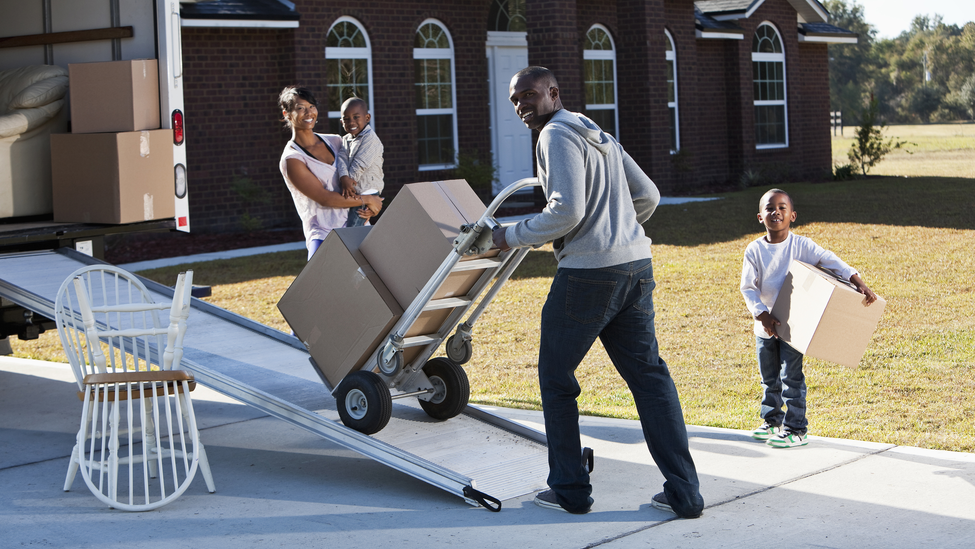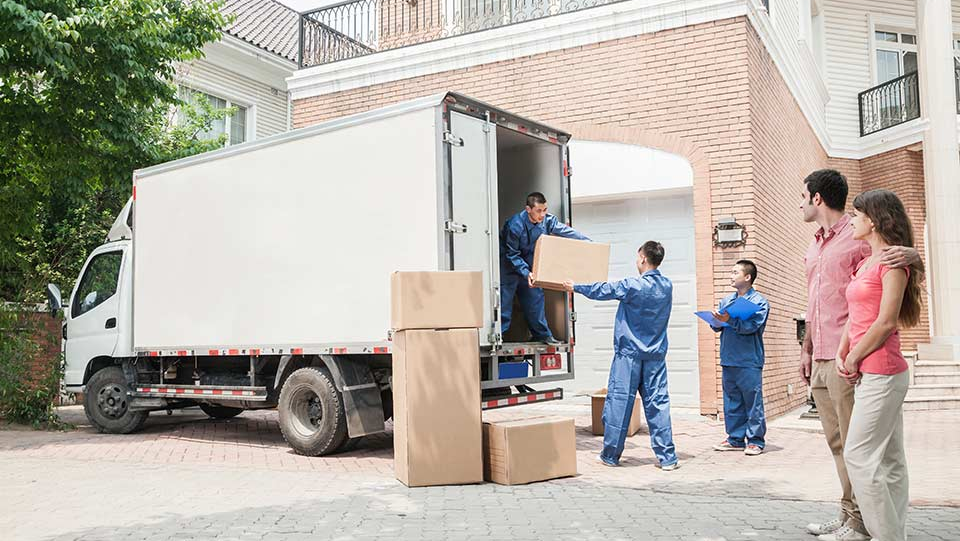5 Tips for Moving on a Budget


Moving to a new place is certainly exciting, but it can also be stressful — and expensive. Once you factor in things like movers, packing materials, truck rentals, gas and more, the costs can creep into the hundreds, maybe even thousands of dollars, for just a single move.
Are you planning a move soon? Don't want to break the bank in the process? Fortunately, a little forethought and creativity can help in that department.
Here are five ways to help reduce your costs and keep a tight rein on your moving budget:
1. Shop around for a moving company
Moving companies typically charge hundreds of dollars for their services, plus extra for things like gas, mileage and larger items like pianos and furniture. If you're going to hire a professional mover, shop around first. Get quotes from at least three different moving companies, and double-check the line-item charges. Does the quote include the truck, all protective materials, gas, mileage and larger furniture items? Does it provide insurance coverage in case of damage to any items you’ll be moving? If not, learn what adding these will cost you if they become necessary.
You can also consider local “mom and pop” moving teams or using an online service that matches freelance labor with local demand to help with everyday tasks. These come at a cost, of course, but are typically more affordable than a large moving company that has less flexible pricing.
Another great way to reduce your cost is to schedule your move for the winter or fall, if that is an option for you, as that’s when demand for professional movers is typically low. Weekdays are also a good choice, as most people move on the weekends. A moving company may be willing to give you a better deal if you move during these low-demand times, as they may be less busy and looking to fill their schedule. It may be worth exploring these options.
Pro tip: Consider doing a little research by checking out organizations online that provide consumer reviews of businesses. Before booking your movers, look at their reviews to get a sense of a company’s track record with other customers and try to verify that the company is legitimate. Note that none of these websites is a guarantee of a perfect experience, but they may help you with your decision.
2. Consider a DIY move
Depending on how much you have to move and how heavy or cumbersome the items are, you may want to consider forgoing professional movers altogether if it looks as if your belongings can be managed without hiring help. If you have dependable family and friends that are willing and able to help with the packing, loading and transport, you might consider offering pizza or a free meal as a token of your appreciation in exchange for their help.
If you have larger items, consider renting a small rental truck for a few hours. Get the smallest size possible and be sure to fill up the fuel tank before you return the vehicle. (It may cost you more if you leave the rental truck in need of gas that the moving company must take care of itself.)
Pro tip: Plan so that you're not moving during rush hour. Heavy stop-and-go traffic can drive up your fuel costs as well as delay your move.
3. Only move what you need
It's important to pare down your belongings before a move. That means donating, selling or throwing away any items you no longer use, need or plan to use in the future.
For one, this reduces your load and, subsequently, your costs to move it. Additionally, if you’re motivated to sell some of your unwanted items, you can put those extra funds toward your moving costs — or use it toward the cost of furniture or decor for your new place.
Here are some options for downsizing your household before you move:
- Donate to The Salvation Army, Goodwill or a local shelter.
- Host a garage sale – perhaps collaborate on one with your neighbors!
- Sell items on social media websites (be sure to check their requirements first).
- Sell books and media to a used bookstore, or donate to your local library’s used book sale.
Offloading some belongings will also make unpacking easier (not to mention faster).
Pro tip: Measure your furniture and make sure it will fit in your new home, as well as through necessary access points. If it won't fit, sell it and consider using the funds for replacement furniture once you're in your new place.
4. Get creative with your packing
Buying boxes, bubble wrap, tape and packing peanuts can get expensive. Instead of purchasing these items, take a more creative approach and use things you already have. Sheets, towels, blankets and cloth napkins all work great as packing materials, and they all need to be packed up anyway, so why not use them? You can also use your own duffel bags, luggage, purses and backpacks rather than cardboard boxes.
Once you run out of these items, try one of these resources for free or low-cost boxes:
- Friends, family and neighbors.
- Local grocery and liquor stores.
- Big-box membership stores that sell bulk products.
- Go online to research not-for-profit organizations or a marketplace that provides used cardboard boxes, to find affordable options that will work for your budget and at the same time may help a worthy cause.
- Consider posting to your social media networks, or any neighborhood groups you might be a part of. There's a chance someone you know has recently moved and may be willing to give you their used boxes.
Pro tip: Start saving the plastic and paper bags from your shopping trips. These make good packing materials and can even be used to help protect fragile items.
5. Track and deduct your expenses
If you're a member of the military (or someone in your household is) you may be able to deduct your moving expenses1 on your annual tax returns. To qualify, you'll need to be moving due to a permanent change of station.
If you're eligible, you'll be able to deduct the costs of moving, storage, travel, lodging and other expenses you incur due to the move.
Pro tip: Keep a detailed record of your moving costs if you qualify for this deduction. Save all your receipts and invoices and keep them somewhere safe until tax season rolls around.
Don't forget
Are you moving to a new place? Don't forget to update your homeowners insurance policy. Use your move as an opportunity to ensure all your belongings, valuables and new property are protected. Contact your insurance agent to learn more about home insurance coverage and how it can safeguard your new home and family.



